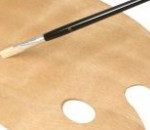More and more studies are finding that too much choice leads to poorer decision making. Sounds crazy and contradictory, I know. I read a fascinating opinion piece in the Sydney Morning Herald (Dinkum has strong Australian roots, after all) by Andrew Leigh that summarised some interesting research on this topic. Here are the best bits:-
- In a share-trading experiment, two groups of university students were pitted against one another. One team saw only share prices, while the other team could also consult experts and media reports. The result? The better-informed team ended up reacting to rumours and gossip, made too many trades, and earned half as much as their less-informed classmates.
- Psychologist Sheena Iyengar made her reputation with an experiment which found that a tasting booth showing 24 jam flavors drew more customer attention, but one with 6 varieties sold more jam. In her book The Art of Choosing, Iyengar gives examples of shampoo and cat litter companies who increased sales by reducing their product range.
In his book How We Decide, Jonah Lehrer maintains that for simple choices we should be guided by our rational brain. Go for functionality and price, and forget the color scheme. For complex items, such as which car to buy, there are too many dimensions to the problem for our rational brain to cope with. In such instances, we shouldn’t be afraid to let our emotions choose.
Iyengar believes we make better decisions if we draw on the experiences of others. We might ask: do people who make this choice look to be happier and more satisfied? Whether it’s studying restaurant customer ratings, reading book reviews on Amazon.com, or asking the advice of workmates, the collective savvy of other consumers can help us make better choices.
What’s the take-home from this? Reviews are powerful. I know I always check Yelp and other sites before committing to a purchase. And I value companies that respond to criticisms with explanations on these sites. So make sure you monitor what’s being said online about your company. The other take-home for me from this research is that we make decisions using our gut feelings and emotions. It’s not enough to argue your product is the best – you need to tell me how it will make me cool as well. Worth remembering.
Photo Credit: http://www.sxc.hu/photo/1066433





